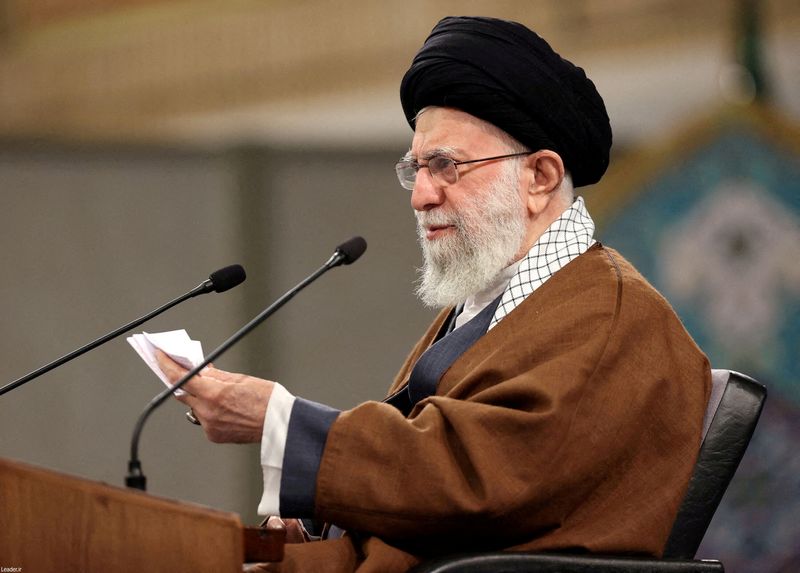DUBAI (Reuters) – Iran’s Supreme Leader Ayatollah Ali Khamenei said on Monday the country’s economy should not be tied to efforts to remove U.S. sanctions.
Iran and major powers have engaged in talks for the past 11 months in Vienna to revive a 2015 nuclear deal, which curbed Tehran’s nuclear programme in exchange for sanctions relief.
“We should not tie the economy to sanctions… It is possible to make economic advances despite U.S. sanctions. It is possible to expand foreign trade, as we did, enter regional agreements and have achievements in oil and other areas,” Khamenei said in a televised speech.
Efforts to clinch a new nuclear deal have been left in limbo after a last-minute demand by Russia, which is now at odds with the West over its invasion of Ukraine, forced world powers to pause talks despite having a largely completed text.
“I never say to not go after sanctions relief, but I am asking you to govern the country in a way in which sanctions do not hurt us,” Khamenei said addressing the country’s officials.
The economy is the top challenge for Iran’s ruling clerics, who fear a revival of protests that have erupted since 2017 by lower and middle-income communities angry at growing poverty.
And yet hardline President Ebrahim Raisi has vowed not to link the economy to nuclear negotiations with world powers, even though the talks could lift most U.S. economic curbs through the revival of the 2015 pact limiting Tehran’s atomic programme.
Khamenei said the economy is the key issue for Iran.
“We should take steps in the direction of developing a knowledge-based economy, which is the most important path to boost our economy,” Khamenei said.
(Reporting by Dubai Newsroom; Editing by Michael Georgy, Alex Richardson and Hugh Lawson)






















